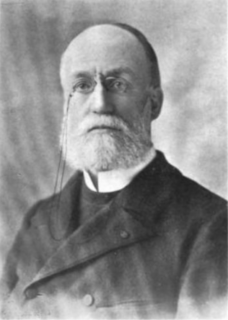 W
WEdward Abbott was an American minister, journalist, and author.
 W
WMarian "Clover" Hooper Adams was an American socialite, active society hostess, arbiter of Washington, DC, and an accomplished amateur photographer.
 W
WCornelius Rea Agnew was an American surgeon.
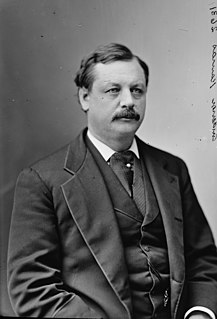 W
WJohn Alexander Anderson was a six-term U.S. Representative from Kansas (1879–1891), and the second President of Kansas State Agricultural College (1873–1879).
 W
WHenry Whitney Bellows was an American clergyman, and the planner and president of the United States Sanitary Commission, the leading soldiers' aid society, during the American Civil War. Under his leadership, the USSC became the largest and most effective organization dedicated to supporting the health and efficiency of the Union army.
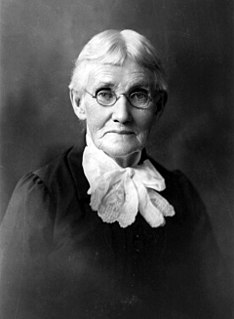 W
WMary Ann Bickerdyke, also known as Mother Bickerdyke, was a hospital administrator for Union soldiers during the American Civil War and a lifelong advocate for veterans. She was responsible for establishing 300 field hospitals during the war and served as a lawyer assisting veterans and their families with obtaining pensions after the war.
 W
WEmily Blackwell was the second woman to earn a medical degree at what is now Case Western Reserve University, and the third woman to earn a medical degree in the United States. In 1993, she was inducted into the National Women's Hall of Fame.
 W
WAtherton Blight was a Philadelphia lawyer, businessperson, author, diarist, and philanthropist who traveled extensively in the middle of the 19th century to Europe and the Middle East. Blight was also a founding member of the Art Club of Philadelphia, a major stockholder in the Newport Casino, and a member of the millionaires club of the gilded age.
 W
WCharlotte Bradford was a nurse during the American Civil War and served as the matron of the U.S. Sanitary Commission's Soldier's Home and Home for Wives and Mothers in Washington, DC.
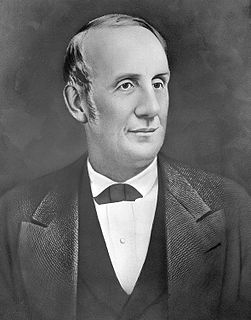 W
WJared M. Brush was Mayor of Pittsburgh from 1869 to 1872.
 W
WRobert Collyer was an English-born American Unitarian clergyman.
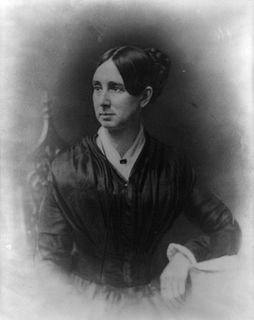 W
WDorothea Lynde Dix was an American advocate on behalf of the indigent mentally ill who, through a vigorous and sustained program of lobbying state legislatures and the United States Congress, created the first generation of American mental asylums. During the Civil War, she served as a Superintendent of Army Nurses.
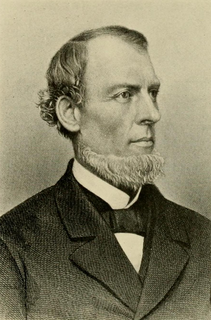 W
WGeorge W. Gale was an American lawyer, judge, politician, and Wisconsin pioneer. He served as a Wisconsin Circuit Court Judge and as a member of the Wisconsin State Senate. He was the founder of Galesville, Wisconsin, and Gale College, and was a driving force behind the creation of Trempealeau County, Wisconsin.
 W
WBenjamin Apthorp Gould was a pioneering American astronomer. He is noted for creating the Astronomical Journal, discovering the Gould Belt, and for founding of the Argentine National Observatory and the Argentine National Weather Service.
 W
WReuel Colt Gridley was an American storekeeper who gained nationwide attention in 1864, when he repeatedly auctioned a plain sack of flour and raised over US$250,000 for the United States Sanitary Commission, which provided aid to wounded American Civil War soldiers.
 W
WFranklin B. Hough was a scientist, historian and the first chief of the United States Division of Forestry, the predecessor of the United States Forest Service. He was among the first to call attention to the depletion of forests in the U.S. and is sometimes called the "father of American forestry".
 W
WSamuel Gridley Howe was an American physician, abolitionist, and an advocate of education for the blind. He organized and was the first director of the Perkins Institution. In 1824 he had gone to Greece to serve in the revolution as a surgeon; he also commanded troops. He arranged for support for refugees and brought many Greek children back to Boston with him for their education.
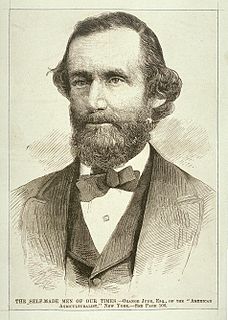 W
WOrange Judd was an American agricultural chemist, editor, and publisher.
 W
WThomas Starr King, often known as Starr King, was an American Universalist and Unitarian minister, influential in California politics during the American Civil War, and Freemason. Starr King spoke zealously in favor of the Union and was credited by Abraham Lincoln with preventing California from becoming a separate republic. He is sometimes referred to as "the orator who saved the nation".
 W
WMary Livermore was an American journalist, abolitionist, and advocate of women's rights.
 W
WDonald Campbell McRuer was an American politician from the Republican Party who served as U.S. Representative from California's 1st district from 1865 to 1867.
 W
WWilliam Weston Patton, was an abolitionist, academic administrator, and scholar. He served as the fifth president of Howard University, and one of the contributors to the words of "John Brown's Body". He was the son of Rev. William Patton and the grandson of Anglo-Irish Congregationalist immigrant and Revolutionary War soldier Major Robert Patton.
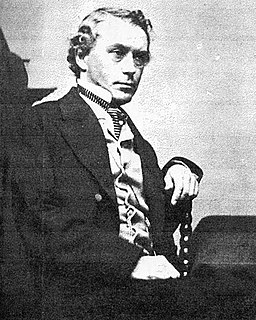 W
WGeorge Templeton Strong was an American lawyer, musician and diarist. His 2,250-page diary, discovered in the 1930s, provides a striking personal account of life in the 19th century, especially during the events of the American Civil War. It covers 1835 to 1875. The historian Paula Baker described him as "perhaps the northern equivalent of South Carolina's Mary Chesnut: quotable, opinionated, and a careful follower of events." He was a well-placed civic leader who was very well known in New York City. He served with distinction on the United States Sanitary Commission during the Civil War. But he never occupied top positions and had no special influence.
 W
WMary Allen West was an American journalist, editor, educator, philanthropist, superintendent of schools, and temperance worker. A teacher in her early career, she served as superintendent of schools in Knox County, Illinois, being one of the first women to fill such a position in Illinois. An active supporter of the temperance movement, West served as president of the Illinois Woman's Christian Temperance Union (WCTU), and editor of the national paper, Union Signal. Her other roles within the WCTU included superintendent of the Training School for Temperance Workers, Illinois State Superintendent of Temperance in Schools of Higher Education, as well as Stockholder, Director, and Secretary of the Woman's Publication Association. She was the first president of the Illinois Woman's Press Association, member of the Chicago Woman's Club, director of the Protective Agency for Women and Children. West was the author of Childhood: Its Care and Culture (1892). She died in Japan while training temperance workers in organization and promotion reform efforts.
 W
WMajor Mehitable E. Woods was a hero of the American Civil War and a pioneer of Jefferson County, Iowa. Gov. Samuel J. Kirkwood commissioned her as a Major.